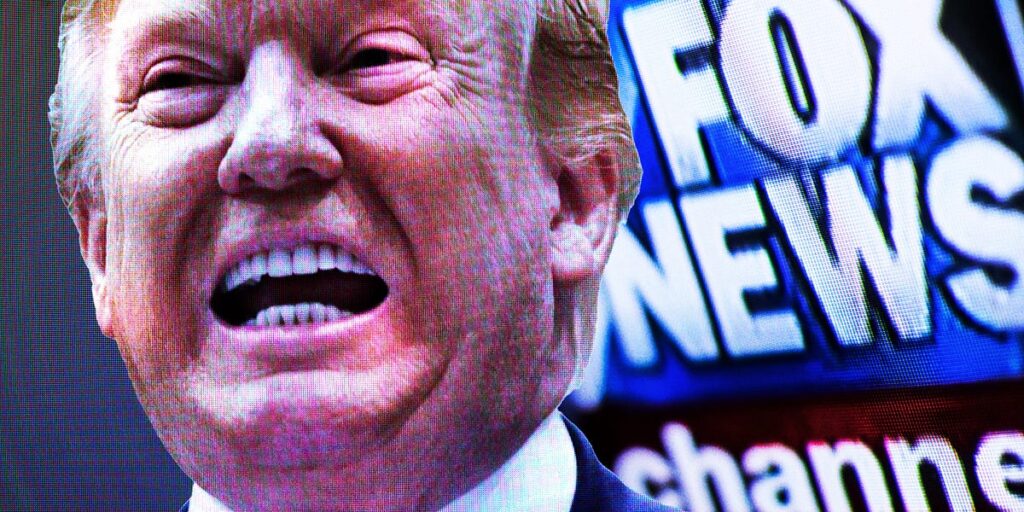
WASHINGTON, D.C. – As President Donald Trump prepares to significantly reduce Medicaid funding, major television networks have largely overlooked the impending impact on millions of Americans.
Breaking: Major Medicaid Cuts on the Horizon
The debate over USAID has concluded, with President Trump and tech mogul Elon Musk having significantly reduced the agency’s influence. This has led to widespread concerns about the resulting global ramifications. Among these, the reduction in Medicaid funding stands out, as it threatens to strip healthcare from millions of Americans.
Immediate Impact
Senate Republican leaders are currently finalizing the language on their version of Trump’s proposed “One Big Beautiful Bill.” This legislation aims to slash over $800 billion from Medicaid, potentially leaving around 8 million Americans without health insurance.
1,390 – Number of times Medicaid was mentioned on Fox News between January 20 and June 21, compared to 13,289 mentions of “Biden.”
Key Details Emerge
The urgency to pass the bill is palpable, with Republican leaders aiming to start the voting process by the weekend and place the legislation on Trump’s desk by July 4. The rapid timeline has left little room for thorough analysis by lawmakers and the public alike, a strategy seemingly intended to minimize public scrutiny.
Industry Response
Organizations advocating for healthcare access, such as FamiliesUSA and Protect Our Care, are actively opposing the bill. They have organized rallies, virtual press conferences, and advertising campaigns to raise awareness. Additionally, Fair Share America has launched a bus tour targeting swing districts to galvanize opposition.
8 million – Estimated number of Americans who could lose health insurance due to proposed Medicaid cuts.
By the Numbers
Media Matters for America’s senior fellow Matt Gertz highlighted the disparity in media coverage, noting that Medicaid received significantly fewer mentions than political figures like Biden on major networks. This lack of coverage is striking, considering the bill’s potential consequences.
What Comes Next
Opponents of the bill are running out of time to influence its outcome. However, they remain hopeful, recalling Senator John McCain’s unexpected vote against the Affordable Care Act repeal in 2017, which stopped the legislation in its tracks.
Background Context
The proposed Medicaid cuts are part of a broader pattern of healthcare reductions that have been a focal point of Republican policy efforts since Trump’s election. In 2017, similar efforts to repeal the Affordable Care Act were met with intense public and media scrutiny, a stark contrast to the current situation.
Expert Analysis
According to healthcare policy analysts, the current bill’s technical nature and the multitude of other controversies surrounding the Trump administration have contributed to its relative obscurity in the media landscape.
Regional Implications
The proposed Medicaid cuts will disproportionately affect states with higher poverty rates, where Medicaid plays a crucial role in providing healthcare access to low-income populations. Key swing states like Michigan and Arizona are expected to feel the impact acutely, influencing local political dynamics.
“The instinct of CNN, the instinct of the New York Times, is to try to find a way to spin it for their own political reasons to try to hurt President Trump or our country,” – Defense Secretary Pete Hegseth
Timeline of Events
- January 20 – Fox News begins tracking mentions of Medicaid.
- June 21 – Media Matters reports on the disparity in Medicaid coverage.
- July 4 – Target date for the bill to reach President Trump’s desk.
Future Implications
If passed, the Medicaid cuts could lead to a significant shift in the allocation of government resources, exacerbating the divide between rich and poor in the United States. The rapid legislative process suggests that Republican leaders are aware of the potential backlash and are keen to avoid prolonged public debate.
The story continues to unfold as advocacy groups and political analysts closely monitor the situation, hoping to sway the outcome before the final vote.




